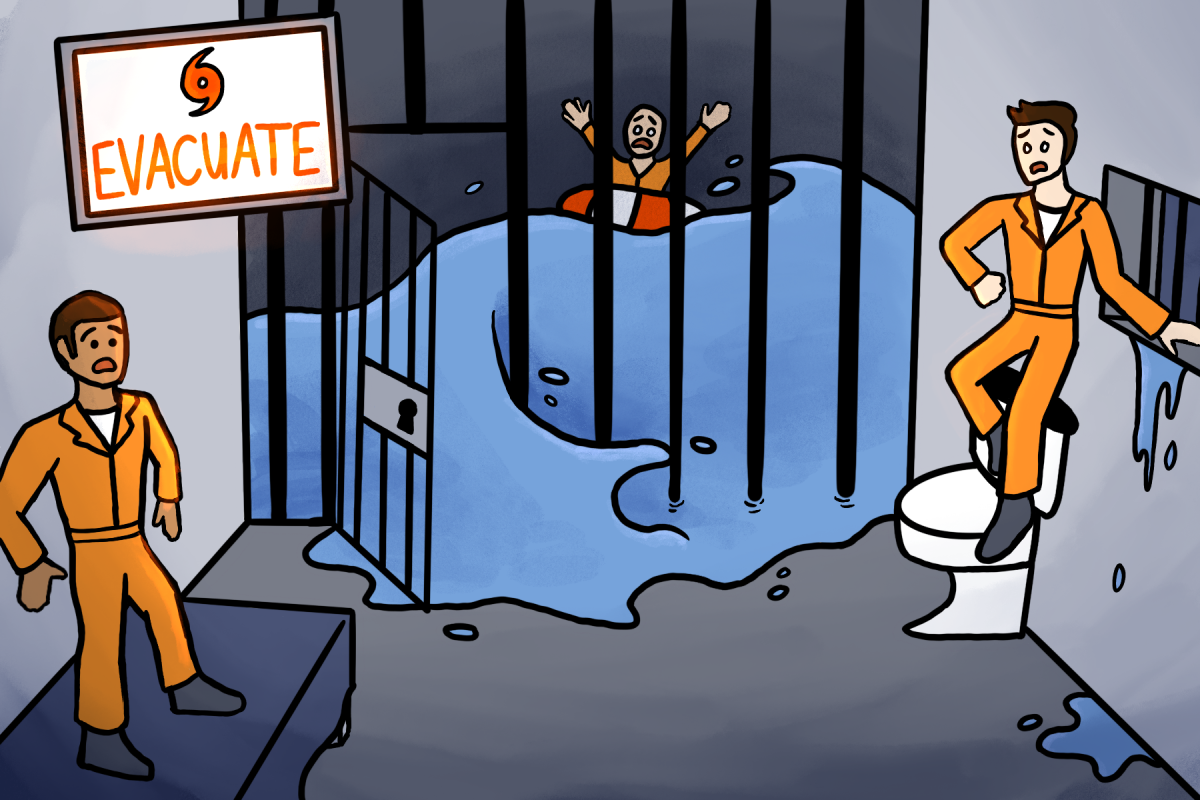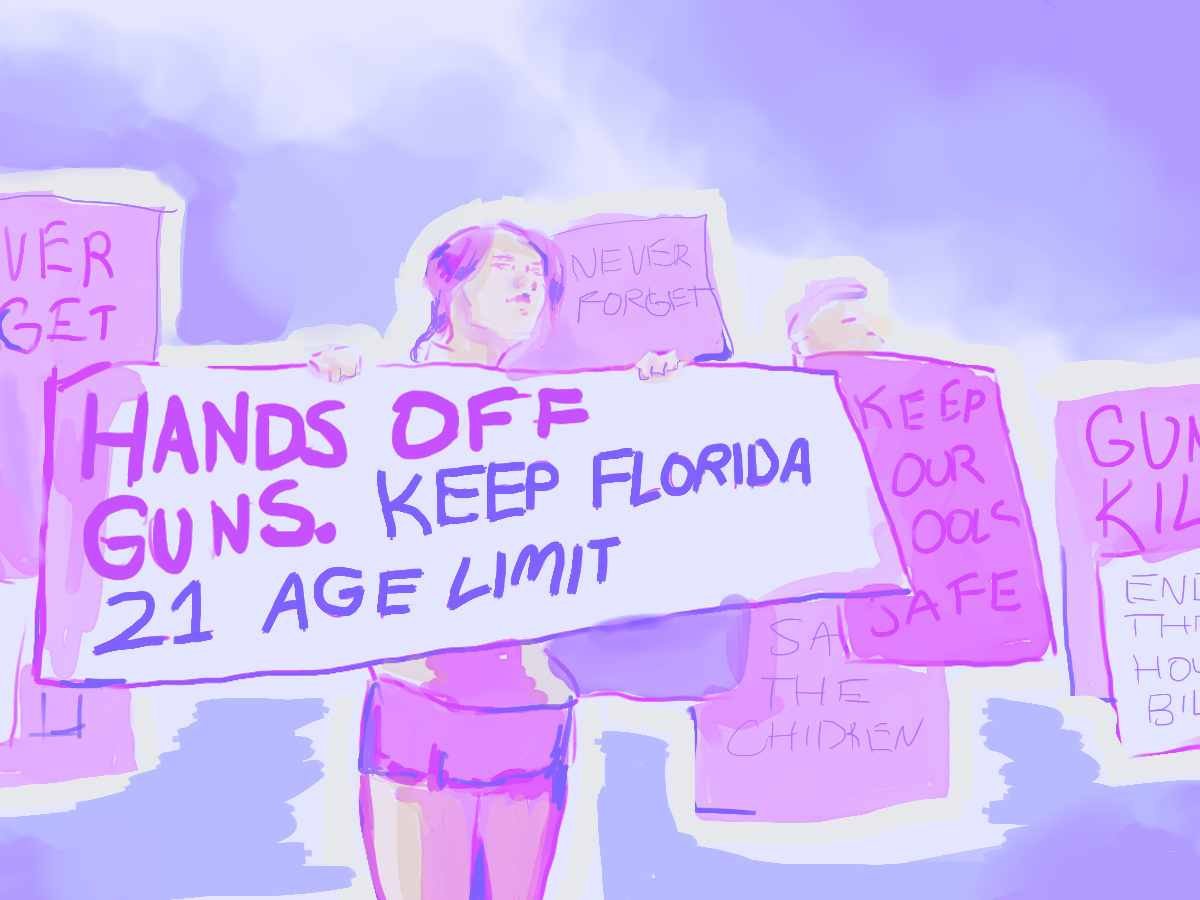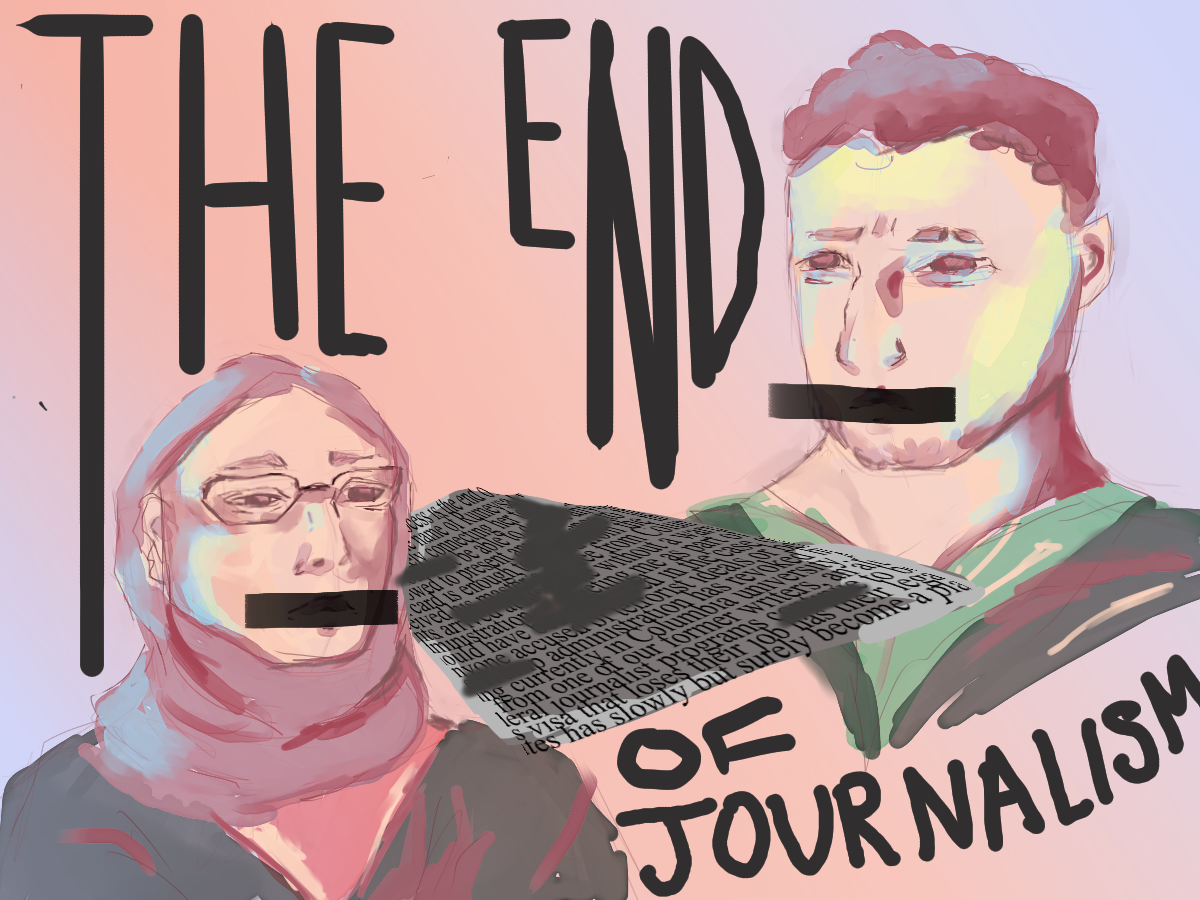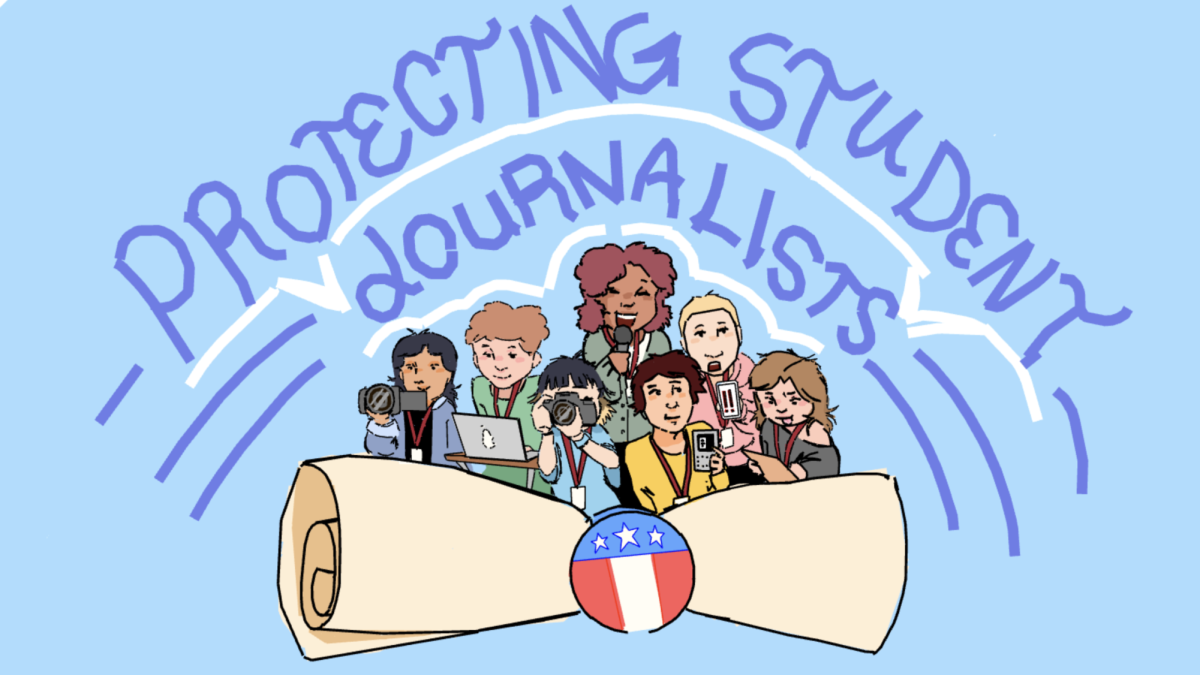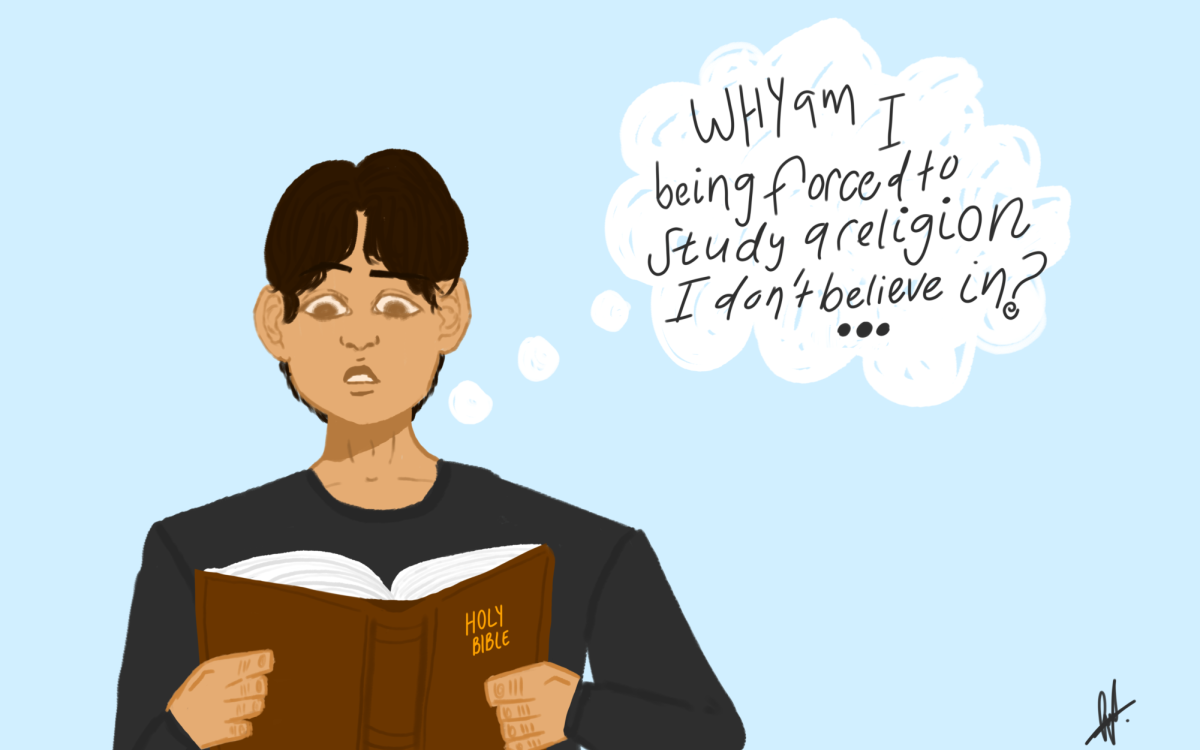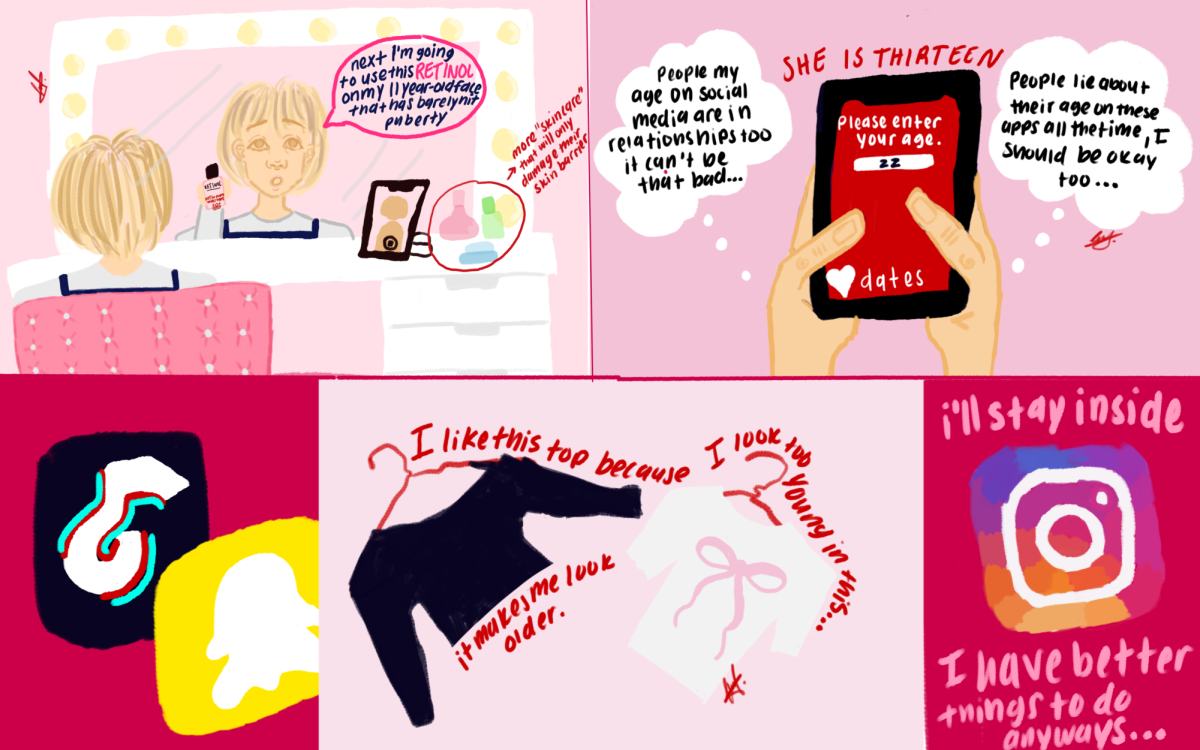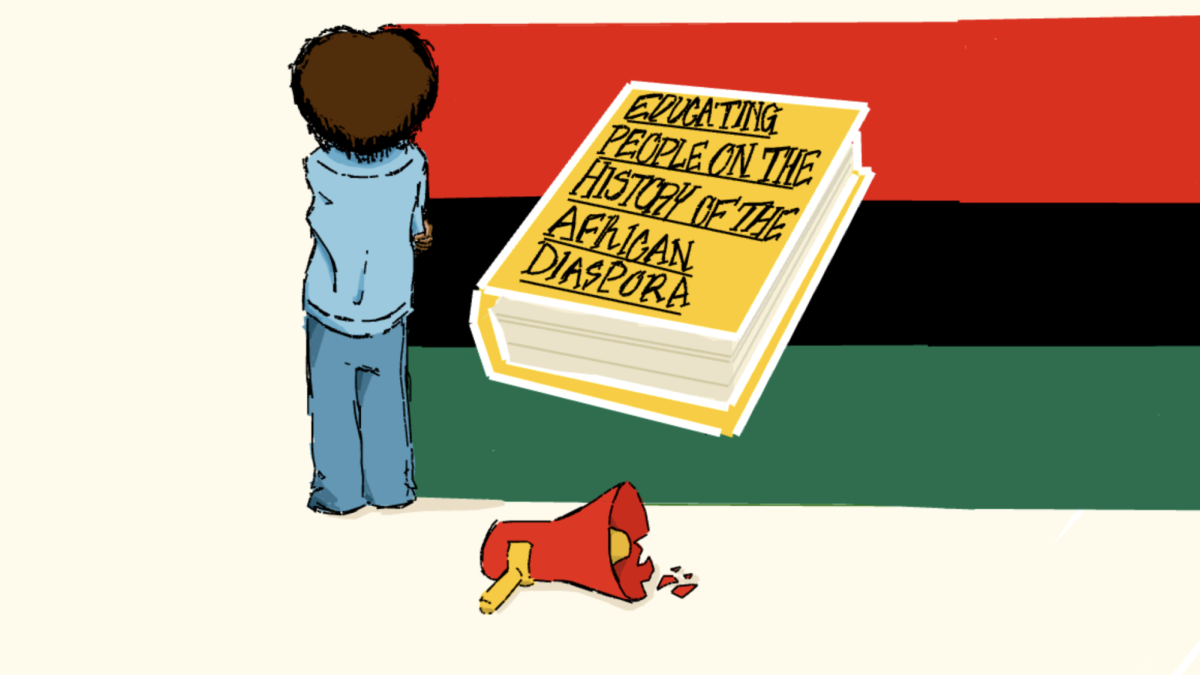Hurricane Helene made landfall in Florida on Sept. 26 as a category four, and immediately after, Hurricane Milton hit Florida on Oct. 9 as a category three. The hurricanes flooded Florida prisons and left almost 4,000 inmates across Florida counties incarcerated despite the mandatory evacuation procedures issued during Helene and Milton. The lack of following evacuation procedures in Florida prisons during these natural disasters highlights society’s underlying prejudice towards individuals who have committed crimes; apparently, having committed a crime makes an individual deserving of enduring life threatening situations.
Neglecting incarcerated individuals during natural disaster situations is a direct effect of individuals and the media’s bias towards inmates. Society’s belief that all imprisonedincarcerated individuals are apathetic and dangerous is far off; in fact, 72.1% of inmates in the U.S. are serving time for nonviolent crimes and have no history of violence.
The belief that most inmates are dangerous leads to a lack of empathy for inmates and ultimately, places them in dangerous positions, such as being left in their cells during mandatory hurricane evacuations.
Despite this, mMany prisons opted for their inmates to remain in their cells during the recent storms, claiming it was safer than evacuating. Manatee County Jail’s Sheriff’s Deputy Brandon Harvey confirmed to the New York Times that their buildings can withstand the hurricanes.
“We have supplies,” Harvey said. “We also have a two story jail, so we can go up to the second floor if it does flood.”
However, this could not be further from the truth. During previous hurricanes, like Hurricane Michael, which made landfall in 2018, inmates were exposed to the elements and left without food and water. During Hurricane Ian in 2022, inmates were found living in unsanitary conditions without clean water. These conditions proveshould have been evidence enough that inmates are not protected from hurricanes in their cells, and leaving them trapped without proper protection is completely unethical. leaving inmates in their cells during extreme natural disasters is unethical, yet these dangers were not enough to end this trend.
Similar to these past hurricanes, Helene and Milton were no different. Milton was expected to be a category five hurricane with winds as high as 100 mph and up to 15 inches of rain. Though the prisons did not lose power, their inmates were still subject to the fear of being hit by intense hurricanes. If there is even a slight chance that prisoners are going to be in danger, it is the moral obligation of prisons to evacuate them. Not doing so is wrong.
Not only is this behavior towards inmates unethical though, it also violates the Eighth Amendment, which protects individuals from cruel and unusual punishment. By purposefully abandoning inmates amidst extreme natural disasters, authorities are subjecting inmates to great dangers.
Society’s perception of inmates furthers their unethical treatment. Although incarcerated, inmates deserve the right to be protected and safe while under government care.

